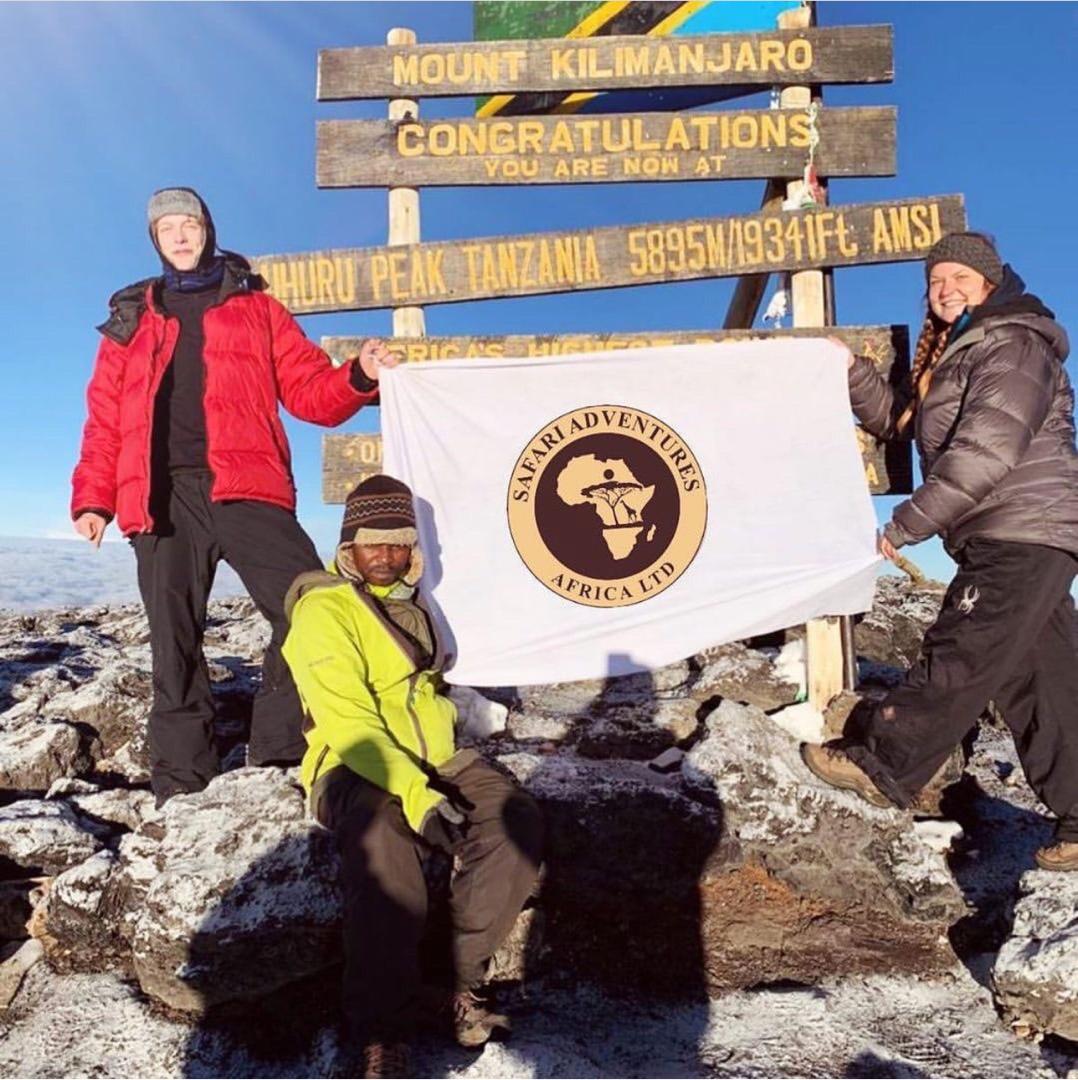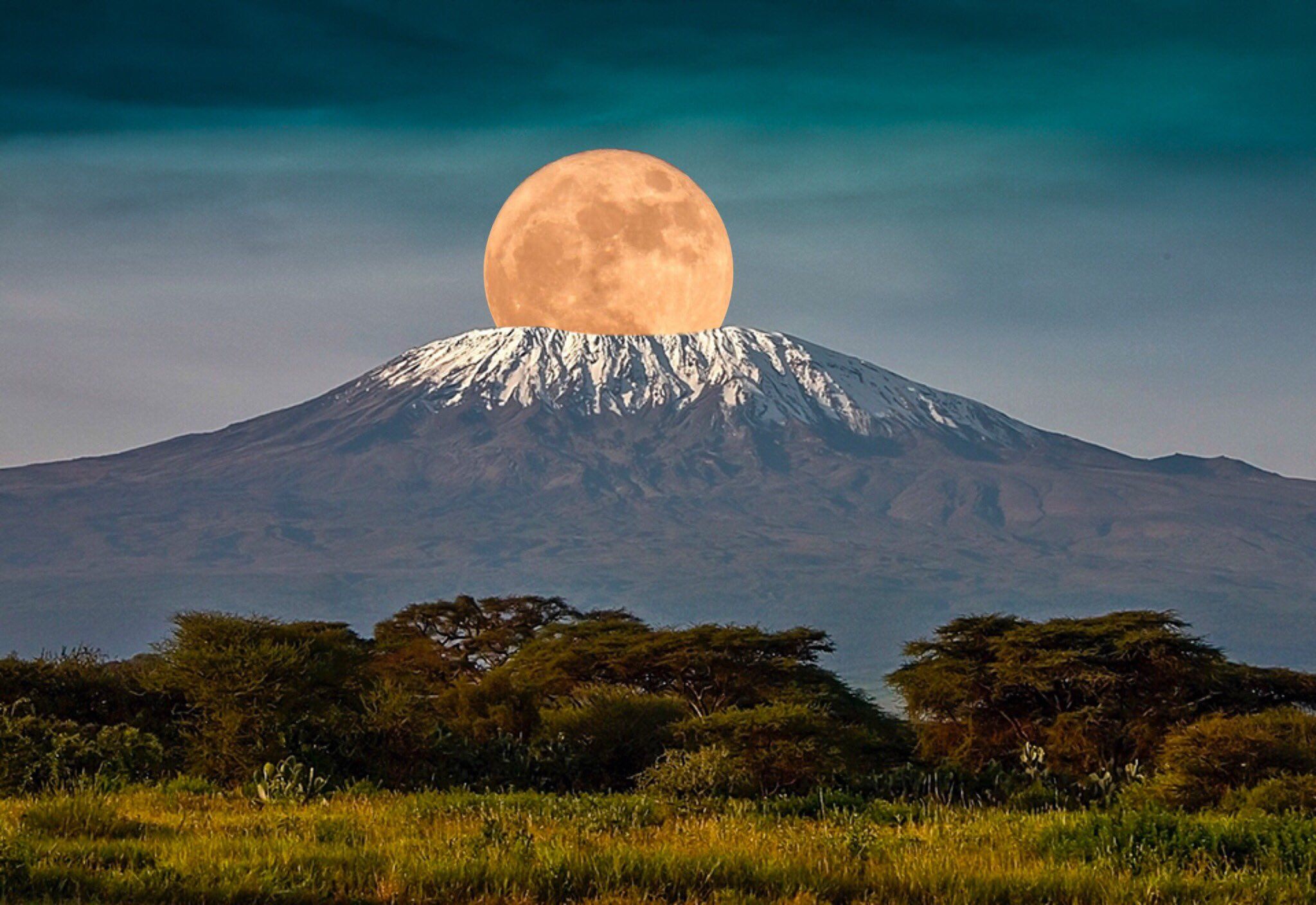Mt. Kilimanjaro Machame Group Tour


Mt. Kilimanjaro Machame Group Tour
NOTE:
ALL GROUP TOURS ARE SIMILAR TO THE EXCLUSIVE TOUR PACKAGES THEY COME IN A BUDGET TO EASEN TRAVELLING FOR EVERYONE AND THEY ARE NOT THE SAME AS PRIVATE TOURS.
Mount Kilimanjaro, the highest peak in Africa, stands at 5,895 meters (19,341 feet) above sea level. Located in Tanzania, this iconic mountain is renowned for its stunning, snow-capped summit and pristine, diverse ecosystems, ranging from lush rainforests to alpine deserts. Hiking Kilimanjaro offers adventurers a challenging yet rewarding experience, as they ascend through ever-changing landscapes to reach the "Roof of Africa."
Machame Route is considered somewhat better during the rainy season compared to others. Although no route is immune to rain, the Machame Route has better-defined trails and campsites that are less affected by muddy conditions. However, it’s essential to be prepared for wet conditions regardless of the route chosen.
The Machame Route, also known as the "Whiskey Route," is one of the most popular and scenic routes to the summit of Mount Kilimanjaro. This 6-day itinerary provides a challenging yet rewarding trek, with breathtaking views and diverse landscapes.
Good to Know:
-
Country: Tanzania
-
Visa Requirements: Yes
-
Languages spoken: English & Swahili
-
Per Person: $250
-
Important to have Visa & Travel Insurance
-
A knowledgeable guide will greatly enhance your experience.
-
Trekking Clothes, Personal Gear, Poles and Other Important Hiking equipment is necessary.
Day 1: Machame Gate to Machame Camp
Elevation: 1,800m to 3,000m
Distance: 11 km
Hiking Time: 5-7 hours
Habitat: Rainforest
Description:
After breakfast, you'll be driven from Moshi to the Machame Gate for registration.
Begin your trek through the dense, misty rainforest. The trail can be muddy and slippery, so trekking poles are useful.
Along the way, you may spot blue monkeys and unique plant species.
Arrive at Machame Camp, set up on the edge of the forest, and enjoy your first night on the mountain.
Day 2: Machame Camp to Shira Camp
Elevation: 3,000m to 3,840m
Distance: 5 km
Hiking Time: 4-6 hours
Habitat: Moorland
Description:
After breakfast, leave the rainforest and climb steadily into the moorland zone, where the vegetation thins and the landscape opens up.
Cross a ridge to reach the Shira Plateau, a high-altitude desert.
As you approach Shira Camp, enjoy stunning views of Mount Meru in the distance.
The camp is located on a plateau, offering panoramic views of the summit and the surrounding landscape.
Day 3: Shira Camp to Lava Tower to Barranco Camp
Elevation: 3,840m to 4,630m (Lava Tower) to 3,960m (Barranco Camp)
Distance: 10 km
Hiking Time: 6-8 hours
Habitat: Semi-desert
Description:
Start with a gradual ascent across the Shira Plateau toward Lava Tower.
At Lava Tower, you'll reach the highest point of the day (4,630m), where you'll have lunch and acclimatize.
Afterward, descend into the Barranco Valley, passing the Giant Senecio trees.
The descent helps with acclimatization, making Barranco Camp a crucial stop. The camp is set in a valley below the imposing Barranco Wall.
Day 4: Barranco Camp to Barafu Camp
Elevation: 3,960m to 4,673m
Distance: 9 km
Hiking Time: 8-10 hours
Habitat: Alpine Desert
Description:
Begin the day by tackling the Barranco Wall, a challenging but rewarding climb.
After the Wall, traverse the ridges and valleys of the Karanga Valley, with views of the southern glaciers and the summit.
Continue upward to Barafu Camp, the base camp for the summit push.
Arrive at Barafu Camp in the early afternoon, with time to rest and prepare for the summit night. Dinner is served early, and you'll get to bed early to rest before the final ascent.
Day 5: Barafu Camp to Uhuru Peak to Mweka Camp
Elevation: 4,673m to 5,895m (Uhuru Peak) to 3,067m (Mweka Camp)
Distance: 19 km
Hiking Time: 12-15 hours
Habitat: Arctic Zone (summit) to Rainforest (descent)
Description:
Around midnight, begin the final push to the summit under the stars.
The trek is steep and physically demanding, passing through heavy scree toward Stella Point (5,739m) on the crater rim.
After a short rest at Stella Point, continue along the crater rim to reach Uhuru Peak (5,895m), the highest point in Africa. Congratulations—you’ve made it!
After celebrating at the summit, begin the long descent back to Barafu Camp for a short rest.
Continue descending to Mweka Camp, where you'll spend your last night on the mountain.
Day 6: Mweka Camp to Mweka Gate
Elevation: 3,067m to 1,640m
Distance: 10 km
Hiking Time: 3-4 hours
Habitat: Rainforest
Description:
After breakfast, continue your descent through the rainforest to Mweka Gate.
At the gate, you'll sign out and receive your summit certificates.
A vehicle will be waiting to take you back to Moshi for a well-deserved rest and celebration of your achievement.
This itinerary provides a good balance of acclimatization and physical challenge, maximizing your chances of reaching the summit of Mount Kilimanjaro.


When booking a Kilimanjaro trek via the Machame Route, packages typically include a wide range of services and amenities to ensure a successful and comfortable climb. Here’s a breakdown of what is commonly included and what is not included:
What Is Included:
Accommodation:
Pre- and Post-Trek Accommodation: Usually 1-2 nights in a hotel or lodge in Moshi or Arusha (one night before the trek and one night after).
Camping Accommodation: Tents and sleeping pads/mats during the trek.
Meals:
All Meals on the Mountain: Breakfast, lunch, and dinner are provided during the trek. Meals are usually prepared by a dedicated cook and include a variety of hot and cold dishes.
Drinking Water: Treated water is provided throughout the trek.
Guides and Staff:
Professional Mountain Guides: Certified and experienced Kilimanjaro guides to lead the trek.
Porters: Porters to carry your gear, food, and equipment. They also set up the camp each day.
Cooks: A dedicated cook to prepare meals on the mountain.
Park Fees and Permits:
Kilimanjaro National Park Fees: Includes entrance fees, camping/hut fees, and conservation fees.
Rescue Fees: Fees paid to cover any emergency evacuation services.
Group Equipment:
Camping Gear: High-quality tents, dining tents, tables, chairs, and cooking equipment.
First Aid Kit: A basic first aid kit carried by the guide.
Transportation:
Transfers: Round-trip transfers between your hotel and the Kilimanjaro trailhead.
Summit Certificate:
Climbing Certificate: A certificate for all participants who successfully reach Gilman’s Point or Uhuru Peak.
What Is Not Included:
Personal Gear:
Clothing: Personal hiking and trekking clothing such as base layers, jackets, waterproof gear, gloves, hats, etc.
Sleeping Bag: You may need to bring or rent your own sleeping bag (rated for -10°C/14°F or lower).
Trekking Poles: Personal trekking poles are usually not provided.
Travel Insurance:
Comprehensive Travel Insurance: Insurance that covers high-altitude trekking, medical emergencies, trip cancellation, and evacuation.
Visa and Vaccinations:
Tanzanian Visa: The cost of obtaining a visa for Tanzania.
Vaccinations: Any required vaccinations, such as yellow fever, as well as personal medications.
Meals Not on the Mountain:
Meals in Moshi/Arusha: Meals before and after the trek (unless specifically included in your package).
Tips for Guides, Porters, and Cook:
Gratuities: Tipping is customary and expected for the guides, porters, and cooks. The amount can vary but typically ranges from $200 to $300 per climber for the entire crew.
Personal Expenses:
Souvenirs, Drinks, and Snacks: Any personal expenses not related to the trek itself.
Optional Tours:Additional Activities: Optional tours or activities, such as safaris or cultural tours before or after the trek.
Emergency Evacuation Beyond Rescue Fees:Helicopter Evacuation: If required, any costs not covered by park rescue fees or personal travel insurance.
